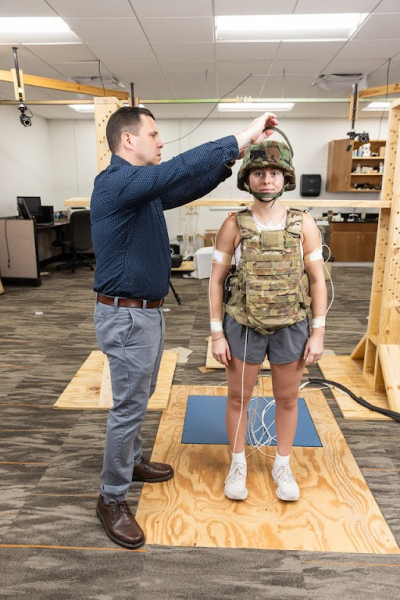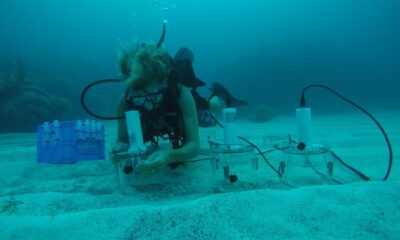
Musculoskeletal injuries are the leading cause of lost duty days for active duty military service members — a pressing problem that costs the U.S. military more than $500 million a year in direct patient care.
In an effort to combat this ongoing issue, a $5.58 million grant will enable Georgia Southern to launch a brand new Tactical and Occupational Performance (TOP) Institute. This first-of-its-kind undertaking will utilize multidisciplinary teaching, research and community outreach capabilities to address preventative injury measures among active-duty military and first-responders.
Funded by the Medical Technology Enterprise Consortium (MTEC), the TOP will be led by Joseph Kardouni, Ph.D., DPT, an Army veteran and associate professor in the Waters College of Health Professions. The institute builds upon years of work by established faculty from multiple programs and colleges that already exist within the Tactical Athlete Initiative at the University.
Aside from bringing all of these programs under one roof, a key aspect of this endeavor is user feedback.
“Having a relationship where the service member can benefit from the University’s efforts and provide feedback to aid further innovation is critical to our success,” Kardouni said.
The institute will also feature human performance lab space dedicated to cutting-edge research and the creation of training programs tailored to the unique needs of military service members and first responders such as firefighters, police and emergency medical technicians. These brand-new labs will specifically examine the load-bearing demands required by the standardized tests for military and first responder personnel, researching their effects on the musculoskeletal system and how to best avoid injury.
The lab’s hands-on, empirical approach, which is still relatively new in military circles, aims to develop practices that can be used in the field — something that, Kardouni says, could redound to the participants’ benefit.
“I spent 24 years as a service member,” he said. “During my time as a physical therapist caring for soldiers in operational units, I realized that we spent a great deal of time building programs from the bottom of the evidence pyramid. We were well-trained experts in our field, and much of our program development was based on anecdotal evidence and expert opinion. That’s a good starting point, but I think this lab will allow us to climb that evidence pyramid, provide results from higher levels of evidence in real-time and help us better inform our programs.”
The institute builds on Georgia Southern’s work with military and first responders. The University’s location makes perfect sense, according to Kardouni.
“Our proximity to military installations and strong relationships with them provide an excellent opportunity for mutually beneficial growth in research and development efforts to maximize the readiness and performance of service members,” Kardouni said. “That and the capability to leverage many existing, relevant programs make our University a prime candidate for an institute like this.”
Coastal Georgia is home to Fort Stewart-Hunter Army Airfield, which houses over 10,000 active duty service members and their families. More than 25,000 people, including over 4,000 civilian workers, also work on the base, making it one of the region’s largest employers and drivers of economic growth. Given the military’s large imprint in the area, the University is a natural partner, and the institute is well-positioned for long-term success.
“I think what’s really going to happen is that once the resources and infrastructure are in place, our natural talent at the University will take off,” Kardouni said. “People are just going to have an environment to thrive. That would be the end goal, to establish an environment where we can leverage our talent and allow our faculty and students to work unencumbered to help our military and first responders while growing the reputation of Georgia Southern.”
The Tactical and Occupational Performance Institute, tentatively opening in Spring 2025, will be located in the Armstrong Center on the Armstrong Campus in Savannah.
GSU


Bulloch Public Safety
06/23/2025 Booking Report for Bulloch County

Bulloch Public Safety
06/30/2025 Booking Report for Bulloch County

Bulloch Public Safety
7/14/2025 Booking Report for Bulloch County

Bulloch Public Safety
7/11/2025 Booking Report for Bulloch County

Bulloch Public Safety
7/09/2025 Booking Report for Bulloch County












